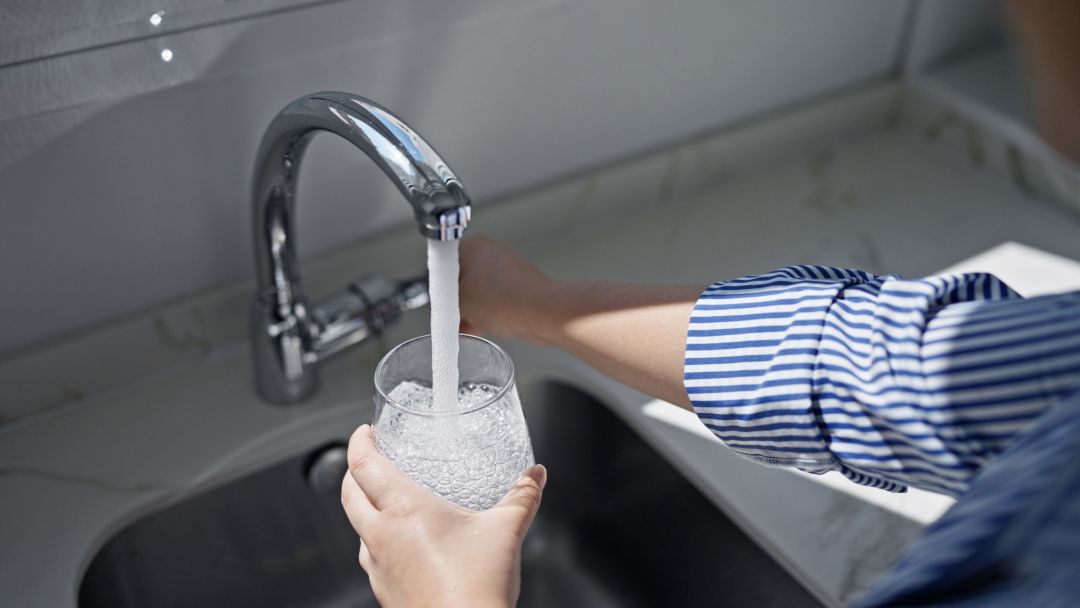Forever Chemicals in North Port’s Tap Water Prompt a Grassroots Testing Effort

How many "forever chemicals" are in our drinking water? Suncoast Waterkeeper wants to find out—and help us get rid of them.
A new study reveals that common PFAS—a family of man-made chemicals dubbed “forever chemicals” because they don’t break down naturally in the environment—can build up in our bodies over time and change gene activity in ways that are linked to cancer, neurological disorders and immune diseases. They're found in everyday items like nonstick cookware, water-repellent clothing, food packaging and firefighting foam. Among them, PFOA (perfluorooctanoic acid) and PFOS (perfluorooctane sulfonate) are the most widely studied.
The research, conducted by the University of Arizona, found epigenetic changes in firefighters exposed to PFAS through firefighting foam and gear, potentially shifting how genes are expressed in pathways tied to leukemia, Alzheimer’s, lupus, asthma, and more. In short, they should be avoided.
But the findings are timely. Suncoast Waterkeeper is currently rolling out its new "Forever Free" program, a targeted testing and education initiative aimed at uncovering and addressing PFAS contamination in North Port’s drinking water. Funded by the Charles & Margery Barancik Foundation, the initiative will run for two years, testing 200 household taps and providing 100 free glass-pitcher filters—certified to remove more than 99 percent of PFOA and PFAS—to residents who meet economic hardship criteria or whose test results exceed the federal health goal of zero.
The program launches this month in response to recent findings showing North Port has some of the highest PFAS concentrations in Sarasota County. Community meetings will be held in August to distribute testing kits, with results and follow-up support provided in September.
The first round of meetings will take place at the North Port Library on Wednesday, Aug. 20, from 6 to 7 p.m., and Friday, Aug. 22, from 10:30 to 11:30 a.m., and at the Shannon Staub Library on Tuesday, Aug. 26, from 6 to 7 p.m., and Friday, Aug. 29, from 10:30 to 11:30 a.m. Samples will be analyzed by a certified third-party lab, with results shared in small-group settings. One-on-one interpretation will be provided by PFAS advisors trained by Suncoast Waterkeeper, who are independent from the laboratory conducting the analysis.

Image: Courtesy Photo
The need for action is rooted in earlier findings. A few years ago, Suncoast Waterkeeper worked with University of Florida researcher Dr. John Bowden on a statewide PFAS survey. “One of his students did a tap water PFAS study in Sarasota County,” says Dr. Abbey Tyrna, Suncoast Waterkeeper's executive director. “North Port had the highest overall concentration and number of PFAS in the county.” Those results came from samples at three public athletic facility drinking fountains, each showing a mix of PFAS compounds.
Bowden’s statewide data showed Florida has some of the nation’s highest PFAS concentrations, and Sarasota County ranks among the highest in the state for surface water contamination. (Surface water refers to sources above ground—such as rivers, lakes, creeks, and canals—that can be directly exposed to runoff, industrial discharge, and other pollutants.) North Port relies heavily on surface sources such as Myakkahatchee Creek and the Cocoplum canal system.
But surface waters are more vulnerable to runoff and pollution than the deep aquifer sources serving much of the rest of the county, making these findings especially relevant. As of June 2025, Florida ranked eighth out of 51 states and territories for highest levels of PFAS concentrations in public drinking water systems.
The federal Environmental Protection Agency (EPA) has set a health goal for PFOA and PFOS at zero parts per trillion (ppt) in drinking water, with an enforceable limit of 4 ppt for each to take effect by 2029. In recent North Port samples, Tyrna says, “We’re finding between 2 and 3 parts per trillion. They’re still under regulation, but above the ideal health goal.”
North Port’s water system is distinct from much of Sarasota County’s. The city runs its own utility, drawing from the Myakkahatchee, the Cocoplum canal system and intermediate aquifer wells, supplemented with treated water from the Peace River Manasota Regional Water Supply Authority. Elsewhere in the county, Sarasota County Public Utilities operates systems supplied primarily by deep wells into the Floridan and intermediate aquifers, with additional treated surface water processed at the T. Mabry Carlton Jr. Water Treatment Facility in Venice. PFAS testing in early 2025 at two county points of entry—Pump Station #1 near University Parkway and Lockwood Ridge Road and and the Carlton treatment facility—found low but measurable levels, with Carlton’s PFOA at 3.8 ppt and PFAS at 2.4 ppt, both under the EPA limit but above the health goal.
PFAS contamination is a nationwide issue. Under the EPA’s ongoing Unregulated Contaminant Monitoring Rule 5 (UCMR5), hundreds of public water systems have reported detections. Florida has deferred to federal regulations for treatment, while states such as California and Michigan have adopted stricter limits. “The only communities that have it addressed are ones that sued—like DuPont—and are trying to recover funds to filter waters,” Tyrna says.
You’d be hard-pressed to have a PFAS-free home. The chemicals are found in everything from makeup to packaging and clothing. Other common PFAS sources include wastewater discharge points, firefighting training facilities and industrial materials such as grease-resistant packaging and water-repellent textiles. Still, Tyrna says, doing something is better than nothing, and even doing something relatively small, like installing a third-party-certified water filter and maintaining it as directed, can help.
“If we do nothing, [PFAS] builds up in our bodies,” Tyrna says. “We start seeing thyroid disease, developmental issues. We [want to] move onto solutions.”
City of North Port residents who are interested in participating in Forever Free are encouraged to sign up here. To donate, volunteer and learn more, click here.



